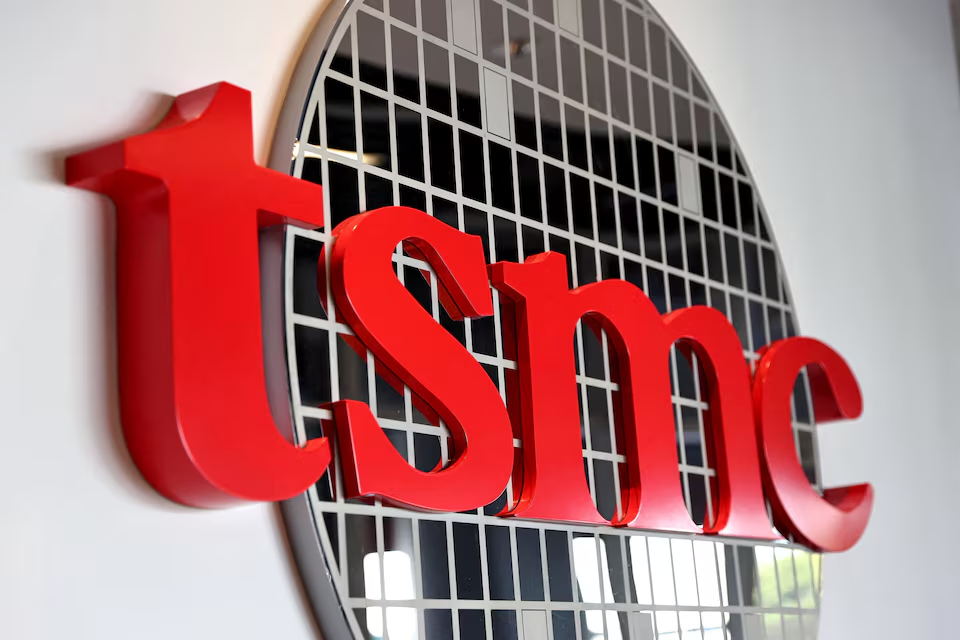Chip Subsidy Deal: U.S. Finalizes $6.6 Billion Pact with TSMC for Arizona Semiconductor Production
The US Commerce Department Friday said it had completed a landmark $6.6 billion in government subsidies for Taiwan Semiconductor Manufacturing Co., which will enable the Taiwanese company’s US subsidiary to expand semiconductor production facilities in Phoenix, Arizona. The agreement signed Friday is the final milestone in building up America’s semiconductor manufacturing capacity and consolidating supply chains for key technologies.
This binding contract is based on a preliminary agreement that came to light in April – the biggest award so far under the $52.7 billion CHIPS and Science Act passed in 2022. The act is a central pillar of U.S. initiatives aimed at strengthening domestic chip production and cutting dependence on foreign manufacturers- moves especially necessary against the backdrop of disruptions in global supply chains.
A Brave New Step for Semiconductor Self-Sufficiency
Chip Subsidy Deal: Worth $6.6 billion, the latest deal shall spur the development and operation of TSMC’s high-tech semiconductor fabrication plant in Arizona, a project already hailed as one of the largest foreign direct investments in the U.S. technology sector. The mega-plant shall produce cutting-edge chips considered crucial in a variety of industries: automotive, healthcare, defense, consumer electronics, among others.
Chip Subsidy Deal: the US will be working to overcome critical vulnerabilities exposed by the recent global shortage in chips. It will protect its domination of technology with increased domestic semiconductor production and reduce its dependence on Asia for supplies.
A Milestone Under the CHIPS Act
The Chips and Science Act of 2022 that committed $52.7 billion in funding to support domestic semiconductor manufacturing and research marks a pillar of U.S. industrial policy. The push is aimed not only at galvanizing new investments in the manufacture of integrated circuit chips but also at high-paying jobs and encouraging innovation in the nation’s semiconductor sector.
The $6.6 billion contract with TSMC marks the first major award under this program, opening the way to others alike. The deal represents a critical step toward the creation of a strong ecosystem for semiconductor innovation within U.S. borders.
TSMC’s role in shaping the future
Chip Subsidy Deal: TSMC is the world’s largest contract chipmaker, playing a key role in global technology supply chains. The company’s decision to set up a significant manufacturing footprint in Arizona underlines its commitment to an expansion of operations beyond Taiwan, its home base.
Manufacturing 4-nanometer chips, this will be a critical advance in the semiconductor manufacturing process and will ensure that the United States is classified as one of the leading countries in advanced chip manufacturing. TSMC further indicated that it has plans for a second plant within Arizona to further cement its position within the United States.
Meeting Strategic and Economic Imperatives
Chip Subsidy Deal: Semiconductor chip manufacturing has now become the matter of national security and economic competitiveness for the U.S. government. With smartphones and defense systems manufactured on semiconductor chip grounds, continuity of innovation and growth are assured by a steady supply of this semiconductor chip.
This subsidy agreement also underscores the growing economic cooperation between the U.S. and Taiwan. In cooperating with TSMC, the U.S. not only strengthens its technological capabilities but also strengthens relationships with a critical ally in the Asia-Pacific region.
Looking Ahead
Chip Subsidy Deal: The $6.6 billion deal encompasses much more than just the transaction numbers, rather serves as an investment in technology for the future. With the TSMC Phoenix plant coming online, it will help address bulging demand for leading-edge semiconductors while reducing vulnerabilities in global supply chains.
Such an agreement would put the U.S. in a closer leadership position for the future generation of chip manufacturing as well as provide further scope for collaboration and innovation in the semiconductor industry. With momentum gained from the passage of the CHIPS Act, this deal clearly exemplifies public-private partnerships that may help spur economic progress and technological advancement.
Chip Subsidy Deal: TSMC Expands U.S. Investment with Advanced Technology and Bold Commitments
Chip Subsidy Deal: The landmark $6.6 billion chip subsidy deal with Taiwan Semiconductor Manufacturing Co. arrived just weeks before President-elect Donald Trump, who has expressed skepticism about such programs, assumes office. It underlines the US government’s determination to continue boosting domestic semiconductor production even as political shifts loom on the horizon.
TSMC has already proved its commitment to the U.S. semiconductor industry: in April, it had already announced plans to expand its investment in Arizona, committing another $25 billion to the sum already planned. This brings TSMC’s planned investment to a jaw-dropping $65 billion by 2030 and includes the addition of a third advanced semiconductor fabrication plant, reinforcing Arizona’s position as a critical hub for high-end chip manufacturing.
A Leap Toward Revolutionary Technology
Chip Subsidy Deal: TSMC is expanding its operations to produce the world’s most advanced 2-nanometer semiconductor technology at its second Arizona facility, scheduled for production in 2028. It will be the foundation for next-generation devices such as next-generation AI systems, high-performance computing, and advanced telecommunications.
In addition, it has agreed to deploy its newest chip manufacturing process called “A16” in Arizona. This is a technological giant step, enabling U.S. facilities to continue cutting-edge work in global semiconductor innovation. It will deliver industry-leading performance and efficiency to be industry models.
Transforming Arizona into a Chipmaking Powerhouse
If TSMC expands with additional funding and increased investments, Arizona can stand to be the world’s new hub for advanced semiconductor production. Thousands of high-tech jobs will be created by the commencement of second and third fabs, related industries attracted, and a very vibrant ecosystem for semiconductor research and development fostered.
Such developments are wins not just for Arizona but the US economy and technological leadership in general. Housed within the U.S., some of the most advanced chip-making capabilities across the world, it would indeed help its economy to address supply chain vulnerabilities related to chips and other technologies that ensure it remains competitive at the cutting-edge of critical technologies.
A Bold Vision for the Future
Chip Subsidy Deal: And beyond money alone, TSMC’s investments hold a vision for a resilient, innovative, self-reliant semiconductor ecosystem. Acceptance of the company’s most advanced technologies in the U.S. and long-term growth plans share this vision with the U.S. government.
Over the next few years, TSMC’s plants in Arizona will likely to build high-performance semiconductors, in large shares. That will do well for U.S. industries, and this country will be a world leader in semiconductor production.
Chip Subsidy Deal: The $6.6 billion chip subsidy deal transcends any mere financial milestone to assume the shape of a transformative step to technological independence. With the amplified investment, cutting-edge technology, and ambitious plans from TSMC, the U.S. is set to take the stage into a new era of semiconductor innovation and economic growth.
“When we started this there were a lot of naysayers who said maybe TSMC will do 5 or 6 nanometer in the United States,” Commerce Secretary Gina Raimondo said in an interview. “Actually they are doing their most sophisticated chips in the United States.”
Aside from this, the amount of $6.6 billion dollars in funding, the deal with TSMC for the chip subsidy has its own Low-Cost Government Loans worth $5 billion, that would pump up the money in place within the financial framework meant to power the US-based operations. It was guaranteed that TSMC would receive the funding incrementally while being tied on certain projects to be accomplished. A senior official confirmed that at least $1 billion would be released to TSMC before the year-end, showing a sense of speed by which the program is going forward.
In return, TSMC has committed to holding a stock buyback for five years with certain exception allowed and sharing excess profits with the U.S., underlining the collaborative nature of this partnership to extend the benefits of its economies beyond corporate gains.
U.S. Secures TSMC’s Commitment with Strategic Investment
Chip Subsidy Deal: The US government formalized its deal with TSMC under an “upside sharing agreement,” guaranteeing that the company will fairly share funding and profits. TSMC CEO C.C. Wei welcomed the contract, saying this will accelerate the development of the most advanced semiconductor manufacturing technology available in the U.S.
The deal is a part of the larger CHIPS and Science Act bill that the Congress approved in 2022 as a measure to promote domestic semiconductor production in the U.S. According to Secretary of the U.S. Commerce Department Gina Raimondo, the initiative has strategic importance. “The market does not price in national security,” she said, calling attention to how much work was done to convince TSMC to expand operations here and bring American firms on board to buy domestically produced chips.
Chip Subsidy Deal: Currently, there are no high-end semiconductor chips manufactured in the United States; hence the investments from CHIPS aim at a radical change in such a manner that an effective and efficient supply chain of advanced semiconductors can be established within the country.
Expanding the U.S. Semiconductor Ecosystem
Chip Subsidy Deal: For the chip manufacturing initiatives, the Commerce Department has allocated $36 billion, which also provides for significant investment contracts with the leaders of the industry. These include, but are not limited to, $6.4 billion for Samsung facilities to be established in Texas, $8.5 billion to Intel, and $6.1 billion to Micron Technology. Along with the investment of TSMC, these deals have indicated a historic step toward placing the United States on top of global semiconductor manufacturers’ ranks.
Chip Subsidy Deal: Commerce officials are working to close these agreements by January 20, the end of President Biden’s term; then momentum for the program should be carried through future administrations. This investment in semiconductor will change the technological landscape of the United States, increase national security, and secure supply chains critical to both the economic and the defense sectors.
U.S. Government Responds to TSMC’s China Shipments Amid Strategic Concerns
Reuters announced just now that the United States Department of Commerce told Taiwan Semiconductor Manufacturing Co. to halt shipping advanced chips to Chinese customers amid increased scrutiny of semiconductor exports. “I don’t have any evidence that we have made a specific order to TSMC,” said Commerce Secretary Gina Raimondo. But she stressed that the United States is committed to both “offense and defense” in its dealings with China.
Chip Subsidy Deal: Raimondo described those investments into TSMC’s U.S. expansion as part of a bigger “offensive” push to build American semiconductor strength. Still, she quickly qualified that there also needed to be a powerful “defensive” strategy to protect “the most advanced American technologies.”. “Defense is making sure that neither TSMC nor any other company sells our most sophisticated technology to China in violation of our export controls,” Raimondo said, underlining the importance of national security in this equation.
Raimondo clarified, however, that, to her knowledge, TSMC had not violated any export restrictions. She said the U.S. government is keen on ensuring any companies it subsidizes or partners with adhere to its national security requirements. “We take national security seriously,” she noted. “We look into every potential problem, whether it’s with companies we subsidize or not.”
This follows growing concerns over access of advanced semiconductor technologies to China, which have not only military applications but also commercial. Increasingly, it was the U.S. that sought to cut off the flow of such advanced technology going to China as part of broader efforts against the burgeoning technological and economic influence of the country.
Chip Subsidy Deal: TSMC’s expansion in the U.S. is seen by many as a strategic move to ensure domestic production and minimize reliance on foreign sources, but the U.S. government is not giving up on some sensitive technologies that could get into the hands of adversarial nations. Raimondo’s statement underlines how the U.S. seeks to find a balance: enhance its semiconductor sector without letting advanced technologies fall into wrong hands and work against the security interest of the nation.
Chip Subsidy Deal: But Washington has already imposed curbs on exports to Chinese firms, especially the semiconductor sector, in its broader drive to restrain China’s technological progress. The latest step now indicates to the U.S. to persist and even step up investments and regulations that will strengthen its hold on the world’s semiconductor market amidst fears over national security.
Chip Subsidy Deal: Those actions by TSMC are under particular scrutiny, given the company’s place in the world’s semiconductor supply chain. Export controls and government oversight will be the core of strategy that takes shape as this tech rivalry unfolds, because the urgent need for the U.S. to preserve technological superiority in the new competition with China is clear.
For more visit : Finance at global hub 360


)



